In the blur of the last three years when I’ve found it increasingly difficult to identify traditional markers of time, my consumption has become more pertinent than I ever imagined in my most navel-gazing, onanistic moments. What did I read? What did I eat? What did I do?
I’m keeping time in my own way. June 2020 was when I decided to journal for three days, with each entry becoming increasingly fervent about how much I loved The Song of Achilles. (“If Song of Achilles envelops me in sweetness, 90 Day Fiancé is the pungent buttermilk bath I deserve,” according to my second entry.)
May 2021 I finished the audiobook of For My Lady’s Heart, Laura Kinsale’s beloved medieval romance, while visiting my dad for the first time post-vaccination. I cried on a Megabus at the reveal of what happened to the heroine Melanthe, incensed that I had nobody to tell.
In January of 2022 I found that there is one (1) fanfiction on AO3 under the Laura Kinsale tag: a tender, two-paragraph scene involving the villain of For My Lady’s Heart, Gian Navona, and his son Allegretto. I think about the author of this fanfiction more than I think about members of my immediate family. Did they also have nobody else to tell?
These are my pleasures, the things that burst within my stomach and bubble up and make me smile or sigh or feel when I get worried that I’ve lost the ability entirely. I’ve always felt a bit behind in wrap-ups or “best of” lists because that’s just not how my brain works, but I do have my own sort of tracking system, things that have spurred me on, whispering there’s so much more to do, think of the fabrics you haven’t touched yet.
I hope these bring you pleasure as well.
The Companion by EE Ottoman
Have you ever had a hope that you held close to your chest because it was precious? It feels like the more that people know about it, the more it has the power to hurt you, to become a tangible failure instead of a wish, a goal, a dream?
I’ve never read a book before that so well captured the feeling of a giddy hope turned to ash, not by a traceable misstep but by the casual cruelty of other people — other people that likely think they are progressive and good and right. In Ottoman’s 1940’s New York, Madeleine takes a position upstate because she’s a literary failure — she cannot become distinguished and accomplished as a writer in New York City because she’s easily clocked as a trans woman. Every avenue for esteem or notoriety comes with the price of a specific debasement, tiny cuts to the soul. She retreats to upstate New York to become a companion to Victor, a trans man who has been down this road before.
"I spend so much of my time not being seen. Explaining and quantifying myself."
"Making myself small and unseen," Madeline said. "Unthreatening and unremarkable."
"In everything," Victor agreed. "So, to not have to do that to be accepted without a fight, it can be almost painful. Getting what you want and not knowing what to do with it. I am good at being hurt and bad at being loved."
Madeline, Victor, and Victor’s former lover Audrey form an upstate sanctuary, a place where they can lick their wounds and learn to create again, learn to love again. In the 2020s I see echoes of this love in my own queer friendships, where we are more open and raw and tender with each other, where friends fuck each other and recall the texture of every closed door.
It’s beautiful. It’s timeless.
Bliss by Judy Cuevas
In round 17 of BookTok’s “Is it okay to give negative reviews?” discourse I read Bliss by Judy Cuevas, the most interesting book about art, addiction, and public perception in a medium filled with books about all three.
In 1903 France, Nardi is a famous sculptor and enfant terrible who was once praised as a genius, but when compliments turned into criticism Nardi threw in the towel. How embarrassing that he thrives on celebrity but can only handle the praise that he covets. His last exhibition was ridiculed to high heaven, but the worst part is that Nardi knows that this criticism is correct. Nardi drinks ether obsessively, and it's boring and embarrassing, just like his terrible sculptures.
Hannah, his love interest, is an art appraiser's assistant, severely underpaid because she came with no references thanks to a salacious reputation as "Miss Seven Minutes of Heaven." She's a pharmacist's daughter from Miami and a former housekeeper who's unworldly enough to be impressed by romantic tales of the Eiffel tower, and smart enough to be chagrined by her naiveté later.
When they're falling in love, Hannah asks Nardi if he likes her brooch. She thought it was beautiful, but her employer planted doubts in her mind. It's too common, too gauche, and the glass pieces in it can shine and catch light but they don't signify taste.
Nardi tells Hannah that her opinion matters too. Hannah's employer is skilled at quantifying opinions, of monetizing them. But wouldn't we lose ourselves if we were trapped by public opinion? Wouldn't we be down one beautiful brooch?
Ravishing the Heiress by Sherry Thomas
Laura Kinsale has an essay called The Androgynous Reader in the romance anthology Dangerous Men and Adventurous Women where she argues against the patronizing idea that women self-insert as romance novel heroines. This second-wave feminist idea (that is still popular today!) suggests that women self-insert and therefore become submissive, or obsessed with romantic love. Kinsale argues that there’s a difference between self-inserting and placeholding, and that women placehold for the heroines so they can critique her along her journey, while self-inserting for the heroes. According to Kinsale, romance heroes get the Big Dark Feelings that women get to identify with through reading romance novels.
The essay was published in 1992, and while it’s a heavily gendered perspective that assumes all parties are straight, as a nonbinary reader in 2022 I had this weird moment of recognition. Kinsale wasn’t really seeing me but here I am, illuminated by a flashlight, which is why I feel so strongly about Fitz from Ravishing the Heiress.
Ravishing the Heiress is a Victorian historical romance that begins with the marriage of convenience between Mille, a sardines heiress, and Fitz, short for Lord Fitzhugh. Millie’s family is hell-bent on social climbing, so they’re eager to marry her off to a peer, and in these circumstances, Fitz is the best they can do. Fitz, who didn’t think he would inherit a crumbling estate, is in love with another woman, but he grudgingly takes on the responsibility of funneling money into his household through marriage to a girl he doesn’t know all that well.
In the early days of their marriage, Millie carries a torch for Fitz, while Fitz causes all sorts of destruction in the wake of the life he thought he wanted but lost. Ravishing the Heiress is polarizing because of Fitz and his conduct, but I can’t help but identify with someone who has big feelings of disappointment and doesn’t know how to handle them.
The book is truly remarkable, a rare first-chance romance between a couple that has been married for years. I hope you read it and look at Fitz with kind eyes.
The Jade Temptress by Jeannie Lin
When Mingyu, the most sought-after courtesan in the Lotus Palace, becomes embroiled in a murder mystery, her only source of hope comes in the form of her former adversary, Constable Wu Kaifeng.
It becomes clear that incredibly powerful people are covering up their tracks, and since neither Mingyu or Kaifeng are in positions that easily garner respect, they have to swim upstream to ensure each other’s safety.
The book would be satisfying as a murder mystery on its own, but Lin masterfully crafted an unbeatable chemistry between Kaifeng and Mingyu. They’re both reserved and stoic, but every touch, every look, every thought is imbued with additional meaning.
Sometimes I remember books in words, and sometimes I remember them in textures. The Jade Temptress is gauzy, ephemeral, and precious.
A Substitute Wife for the Prizefighter by Alice Coldbreath
Coldbreath’s trope of choice is marriage of convenience and she has mastered it here. In A Substitute Wife for the Prizefighter, Lizzie is down on her luck and at the mercy of Benedict Toomes, a prizefighter that deigns to marry her in retribution for her prior snobbery. But early on it’s clear that, despite what he says, Benedict doesn’t loathe Lizzie, he’s obsessed with her. He thinks dragging her to a traveling fair will humble her and he’s ready to pick up the pieces, but Lizzie is so used to being set aside that she has a well-honed sense of self-preservation she can tap into.
Coldbreath also loves a jealous hero, but when paired with a heroine who has suffered from neglect it just works. An overcorrection, maybe, but if it’s nice to be noticed, how much nicer to be hoarded like a dragon’s treasure?
Vivid by Beverly Jenkins
Vivid is published by Avon, an imprint of HarperCollins. In solidarity with the HarperCollins Union strike I won’t post more detailed thoughts on it, which is a small shame under the umbrella that is the biggest shame of them all: a big five publisher refusing to come to the bargaining table. You can learn how to support the strike here.
Forever & Ever by Patricia Gaffney
You can divide Gaffney’s Wyckerley trilogy into three distinct sects of power in a provincial Victorian life: To Love & to Cherish is God, To Have & to Hold is prison, and Forever & Ever is labor.
Connor Pendarvis moves to Wyckerley to investigate the working conditions of a copper mine. On his first day in town he sees a vision: a beautiful woman in white teaching children how to sing in the choir. He's immediately smitten, and just as he takes steps to begin a flirtation he finds out her name: Sophie Deene. The owner of the mine.
Sophie inherited the mine from her father who thought she was as smart as a man. The mine is her triumph, a signifier of her value, but that value doesn't extend to the people beneath her, tutworking and blasting and dying young in one of the most unforgiving occupations imaginable.
This is one of the most biting class difference romances I’ve ever read, and Gaffney makes Sophie ignorant enough that she’s not irredeemable, while never letting her off the hook. She's kind, beautiful, likeable, loveable, and complicit.
The Flesh and the Devil by Teresa Denys
The Flesh and the Devil is a cult classic bodice ripper by Teresa Denys, the pen name of the late Mills and Boon editor Jacqui Bianchi. Set in Spain post-Inquisition, the book follows a young and beautiful Juana as she tries to escape her fate: a marriage to the Duque, an erratic man who is guaranteed to kill her. When Juana pushes back against her fate she’s met with a greater force, the Duque’s mercenary, Felipe. Felipe is Juana’s salvation but he’s also her nightmare — his help comes at an exorbitant price.
I’ve written about Denys and both of her books in more depth here, but part of the reason I love this book so much is that everything Felipe says is so metal.
“Kindness is a painless thing to give, and easy, a sop to those you do not need. Friendship and kindness have nought to do with this." For a moment the look in his eyes, as brilliant as an eagle's in the harsh inscrutability of his face, terrified her. "I am not kind to the air I breathe -- nor the food I eat -- nor to you.
Unforgivable by Joyce McGill
ACAB is a truth to live by, but it can also be an easy mantra for folks that are interested in the aesthetics of protest without wanting to commit to the work of prison abolition. I know people that will gleefully call cops pigs while applying carceral logic to other places in their lives—surveilling neighbors and viewing every unknown as a potential threat.
Unforgivable is something that I’ve previously drawn a hard line on: no cops. But the spirit of the book is not pro-cop or incarceration, and it would be a crying shame to write off the first Black romance Silhouette Intimate Moments published just because it’s not easy to categorize.
In Unforgivable, the heroine Patrice returns to her hometown, an eerie, segregated place that hasn’t forgiven her for her past transgressions. When her family becomes embroiled in a murder investigation she comes under the scrutiny of Adam, the chief of police. As she and Adam start to work together, Adam comes to terms with the harm that the town, the inhabitants, and his predecessor have done to Patrice.
I felt distinctly unbalanced while reading it. There are seemingly discordant notes, something a bit Twin Peaks in how the cozy small town becomes terrifying by degrees — a frog slowly boiled to death.
Lightning that Lingers by Sharon and Tom Curtis
This is a screwball comedy: Magic Mike XXL meets Untamed Heart. The most prudish woman of the 1980s, (She faked sick during an art class so she wouldn’t have to look at nudes!) Jennifer Hamilton is paired up with the Cougar Club’s star attraction — an exotic dancer named Phillip Brooks.
Phillip came from money. In a phrase that still makes me hoot with laughter months later, his family was once known as “the Rockefellers of Wisconsin.”
Tom and Sharon Curtis are best known for their pirate historical The Windflower, and Lightning that Lingers has the same zany, frenetic energy that made that book famous.
2023?
It’s tough out there, friends. Find something to take pleasure in.

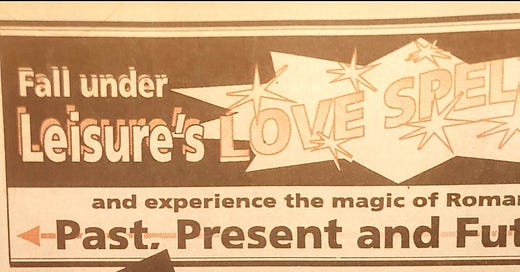


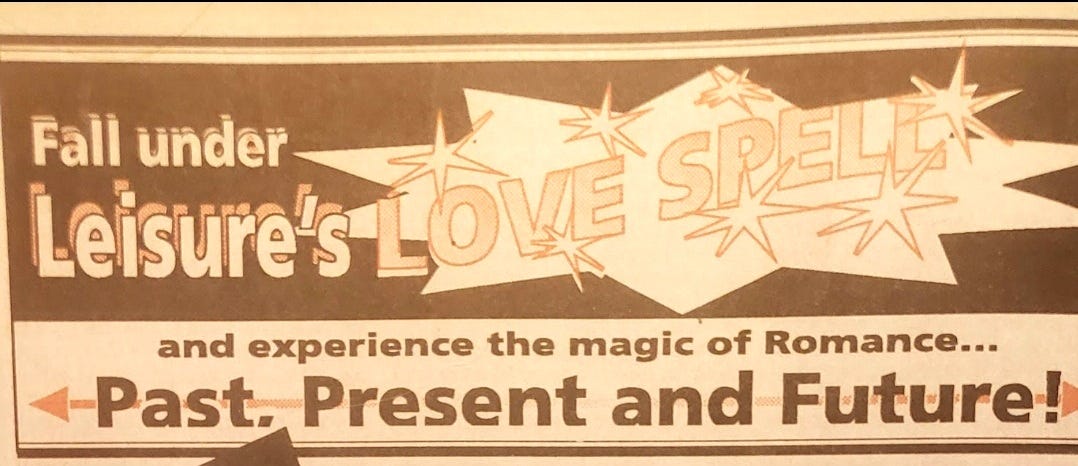
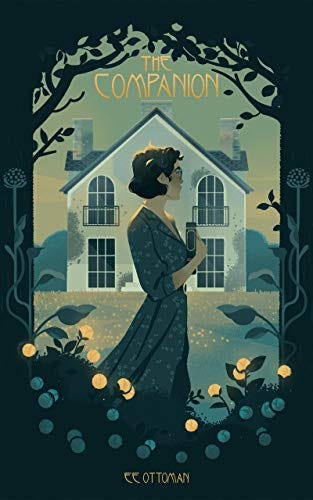

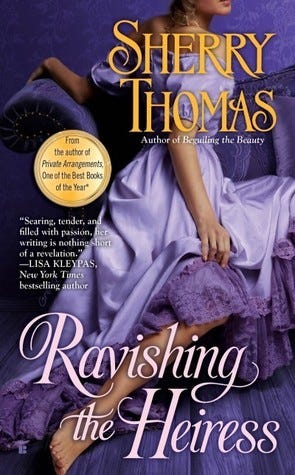
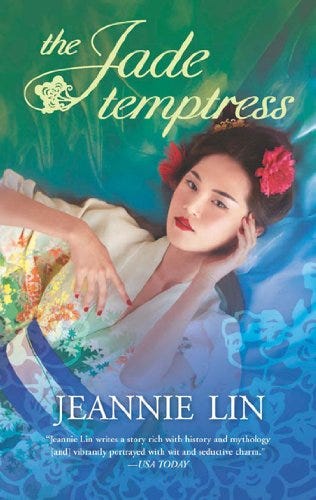
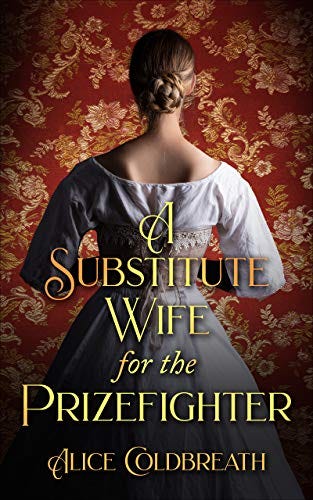


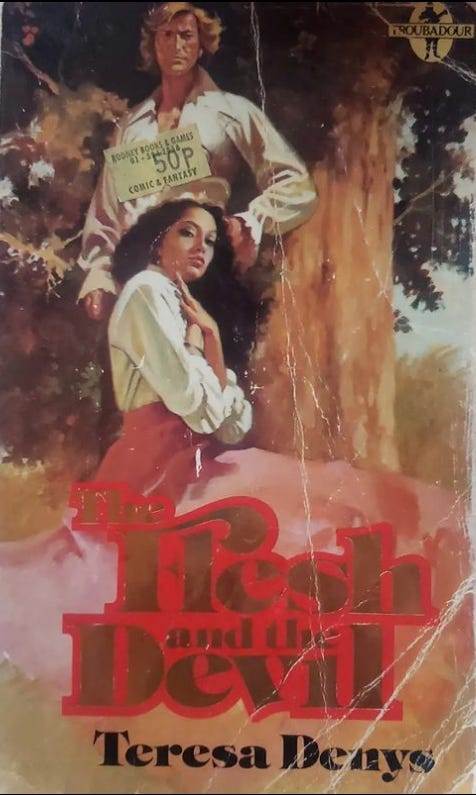
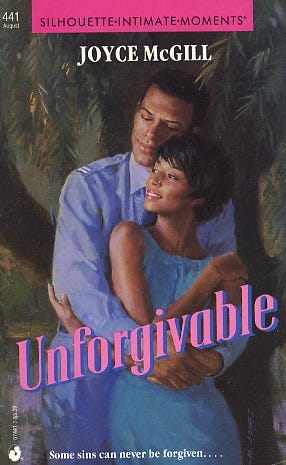

Okay, this is my fourth sign from the universe to read the Patricia Gaffney trilogy! Adding to my tbr next year.